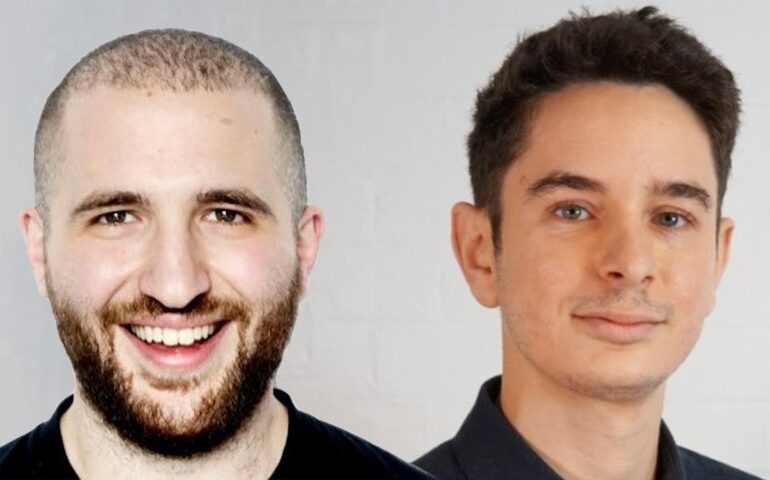
Two Old Elizabethan entrepreneurs and a friend have launched an innovative business that leverages the power of AI to help students revise and learn.
Their online business, Save All, uses machine learning to turn students’ own input into interactive quizzes. As well as a website, there are iOS and Android Save All apps.
Backed by venture capitalists, QE contemporaries Paul Evangelou and Petros Christodoulou (2001–2008) and their business partner, Robin Jack, are keen for Old Elizabethans to try out Save All for themselves.
“You can paste or type in pure information, and our AI automatically turns it into interactive quizzes,” says Paul. “It recognises key words and generates questions.” Users can also upload their own images to be used.
“These quizzes apply principles from cognitive science research – such as spaced retrieval, active recall, and interleaving – to maximise effectiveness for memory.
“Please try it and let us know what you think,” Paul says.
After graduating from Cambridge, Paul became a teacher, and during that time conducted research into cognitive science. Having realised the value of using quizzes to aid learning, he introduced the concept to Petros and to Robin, whom the pair had met at Cambridge.
For his part, after Philosophy at Cambridge, Petros’ career has included a spell working in YouTube marketing for Google and a period as an analyst. He later developed his interest in AI, taking a postgraduate diploma from Birkbeck, University of London, and a Master’s in Machine Learning from Imperial in 2018–2019, where he came top out of 60 students in his year. He then worked for nearly two years as a machine learning specialist for Amazon.
The three friends realised that existing quiz software was very slow and difficult to use, but that by deploying artificial intelligence and marrying that with effective design, they could make it much faster and deliver a much better experience for the user.
Each of them plays to his strengths in running the business. Paul handles the marketing and the web design, including the user experience (UX). He spent the past year learning visual design – “that has kind of been my hobby” – by following online courses and having weekly sessions with a mentor. He has also been focusing on learning how to do TikTok marketing and has made many TikTok videos – several have clocked up view counts in the tens of thousands. [link to https://www.tiktok.com/@saveall.ai]
Petros is responsible for the machine learning and website front-end coding. Robin’s role centres on the backend database.
The three lived together in a shared house for the first two years. All three now have partners but still live within 30 minutes of each other in East London.
Having raised a six-figure sum, Paul, Petros and Robin all went full-time with the business in 2021.
“We have built something that people really like,” says Paul. “Now we are looking to expand. We have 50,000 active users, including GCSE and A-level students as well as university students. It’s a good start, but there is a long way to go to reach the billion-plus numbers that we are aiming for. We want to be as big as, or bigger than, Duolingo and Quizlet.”
They have built Save All using a ‘freemium’ model. “We have used aspects of gaming design, where, for example, standard users have a certain number of lives. If they use all of them, there is an enforced ‘cool down’ period, but this can be bypassed by buying a monthly subscription and gaining more lives. We will also allow the purchase of other add-ons in a way that is familiar to gamers.”
They are now working to towards the next round of funding.
Focused on their student market, they will keep the pricing affordable, Paul says.
However, he adds that Save All is by no means only targeted at the young and those in full-time education.
“We have had a woman in her sixties who used it to help her memorise bird characteristics, having taken advantage of the site’s facility for uploading images and diagrams.”
Other actual and potential users include those preparing for their driving theory tests and cognitive behavioural therapists, who could use it to monitor their patients’ mental health. Their corporate customers have included Starbucks, who use Save All to test employees’ knowledge of different varieties of coffee.
As a proud Old Elizabethan and member of Underne, Paul cherishes fond memories of being taught History by Mr Lewis: “That was really fun: the lessons were animated.” He went on to read History at university.
Paul also enjoyed playing rugby, fluctuating between the A and B sides, while Petros held a more fixed position in the A side.

 His QE contemporaries, Sam Bayney and Harikesan Baskaran, were also among those helping out on the day.
His QE contemporaries, Sam Bayney and Harikesan Baskaran, were also among those helping out on the day. Galactic Challenge, which is for students aged 10-14, is the sister competition of the UK Space Design Competition (UKSDC), which is for those aged 15–18. Aadil has for several years supported both competitions and is a member of the UKSDC board. A Senior Analyst with the Cabinet Office, he graduated with a first in Physics from Imperial College London.
Galactic Challenge, which is for students aged 10-14, is the sister competition of the UK Space Design Competition (UKSDC), which is for those aged 15–18. Aadil has for several years supported both competitions and is a member of the UKSDC board. A Senior Analyst with the Cabinet Office, he graduated with a first in Physics from Imperial College London. In addition to Aadil, the competition was judged by staff from the Space Science & Engineering Foundation, as well as QE Head of Physics Jonathan Brooke, and Dr Flore Faille, Head of Physics at HBS.
In addition to Aadil, the competition was judged by staff from the Space Science & Engineering Foundation, as well as QE Head of Physics Jonathan Brooke, and Dr Flore Faille, Head of Physics at HBS.
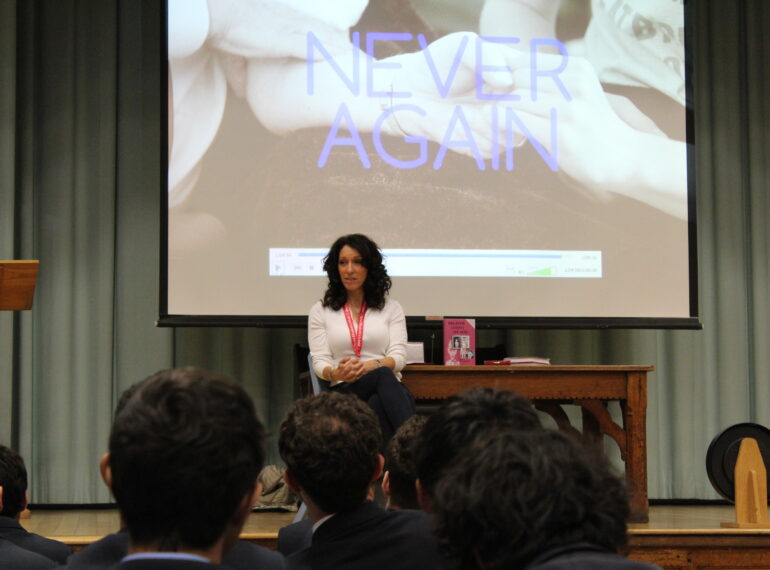
 The film, Breathe Deeply My Son, was shown to Year 9, with a question-and-answer session afterwards.
The film, Breathe Deeply My Son, was shown to Year 9, with a question-and-answer session afterwards.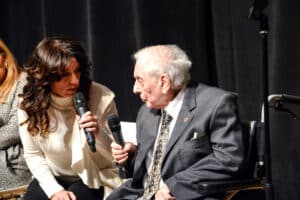 Mr Wermuth survived the war weighing just 5st 3lb (33kg). His father, mother and sister all died in concentration camps.
Mr Wermuth survived the war weighing just 5st 3lb (33kg). His father, mother and sister all died in concentration camps.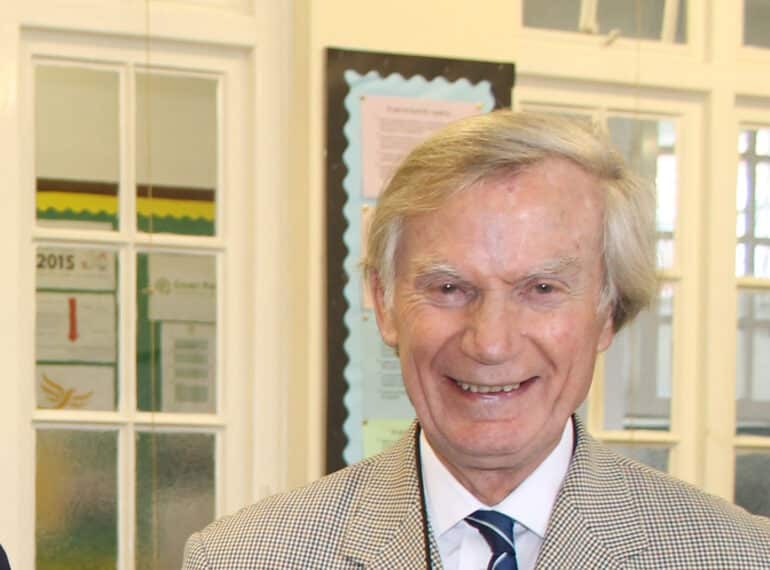
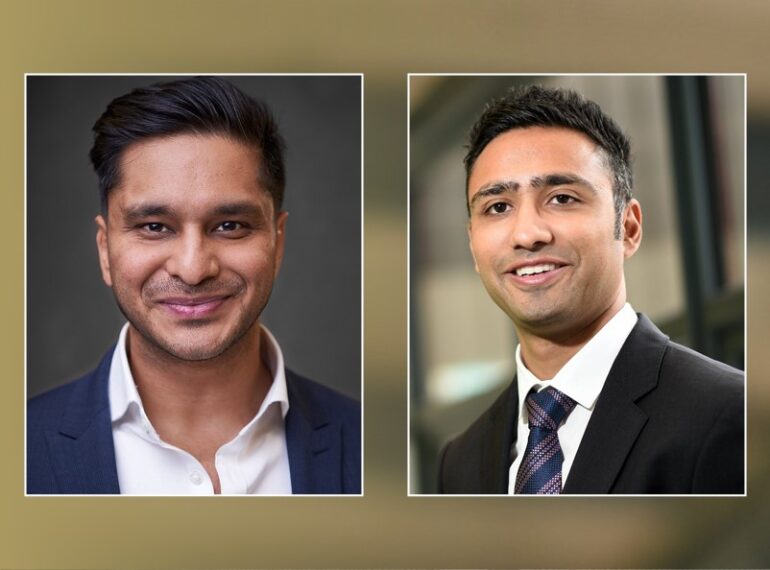
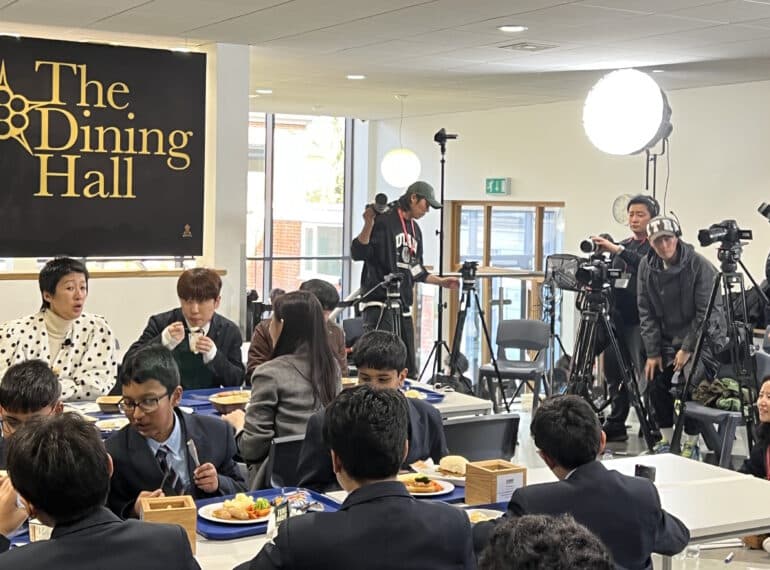
 “Whenever I mention how old my secondary school was and that it takes its name from Queen Elizabeth the First, not the Second, it gets a lot of gasps of surprise,” he says. Some have even made mention of Harry Potter and Hogwarts when they learn just how old the School is!
“Whenever I mention how old my secondary school was and that it takes its name from Queen Elizabeth the First, not the Second, it gets a lot of gasps of surprise,” he says. Some have even made mention of Harry Potter and Hogwarts when they learn just how old the School is! Peter said he was excited to be presented with the opportunity to film at QE: “To finally get a chance to show what a wonderful school QE is on screen was surreal. The filming itself went better than I could have imagined, too, in terms of the other cast and staff being impressed by the school – its teaching, facilities and, most of all, polite and incredibly intelligent pupils.
Peter said he was excited to be presented with the opportunity to film at QE: “To finally get a chance to show what a wonderful school QE is on screen was surreal. The filming itself went better than I could have imagined, too, in terms of the other cast and staff being impressed by the school – its teaching, facilities and, most of all, polite and incredibly intelligent pupils.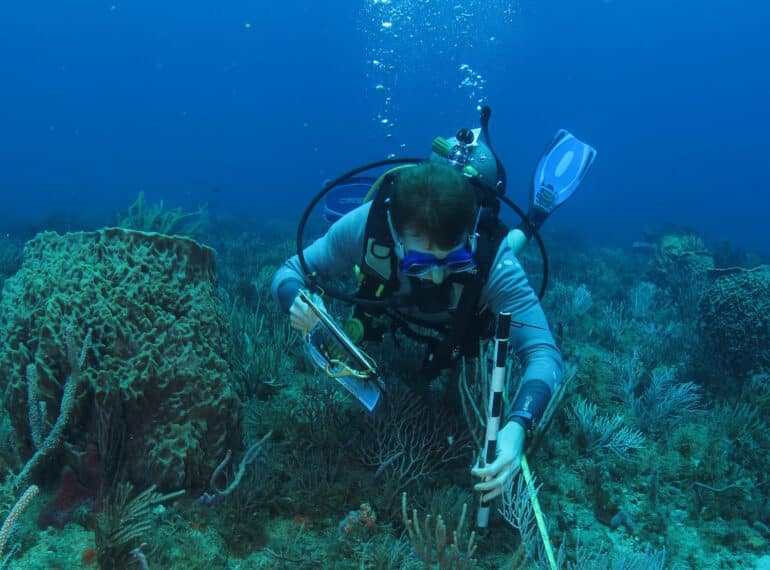
 His work on understanding the future prospects of the reefs has been presented at international conferences and published in international journals.
His work on understanding the future prospects of the reefs has been presented at international conferences and published in international journals. “I assessed how community dynamics and coral demographics (e.g., growth, recruitment, mortality rates) are influenced by global stressors (e.g., ocean warming, hurricane activity) and local anthropogenic pressures (e.g., nutrient pollution, increased sedimentation from coastal construction) to understand their recovery potential and viability under climate change.”
“I assessed how community dynamics and coral demographics (e.g., growth, recruitment, mortality rates) are influenced by global stressors (e.g., ocean warming, hurricane activity) and local anthropogenic pressures (e.g., nutrient pollution, increased sedimentation from coastal construction) to understand their recovery potential and viability under climate change.”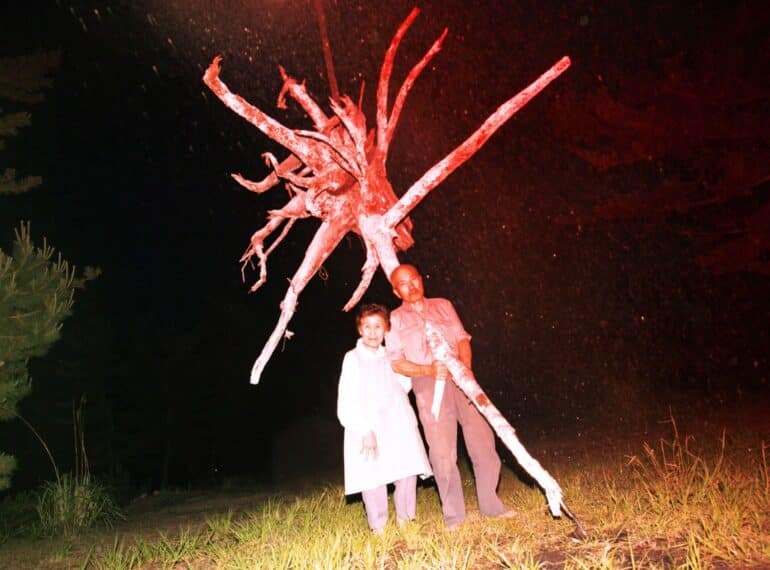
 The exhibition, Picturing the Invisible, is now on at the Heong Gallery – a contemporary art space in Downing College, University of Cambridge, that has recently hosted exhibitions featuring artists including Ai Wei Wei, Barbara Hepworth, and David Hockney.
The exhibition, Picturing the Invisible, is now on at the Heong Gallery – a contemporary art space in Downing College, University of Cambridge, that has recently hosted exhibitions featuring artists including Ai Wei Wei, Barbara Hepworth, and David Hockney.
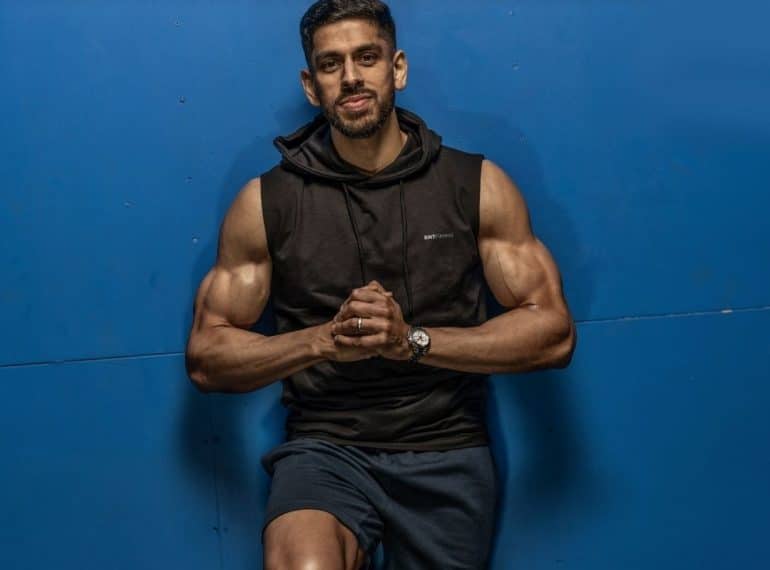
 Akash himself turned vegan last year and has used
Akash himself turned vegan last year and has used 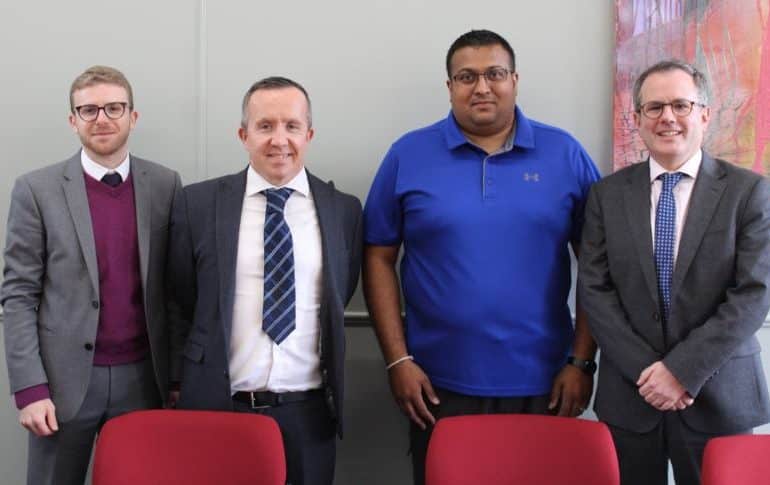
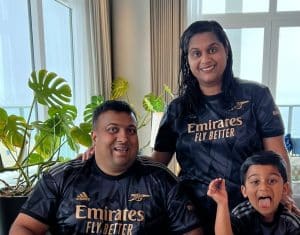 One highlight that sticks in his mind is the research & presentation course he took. “I really enjoyed that class the most, partly because it prepared you for public speaking. Also, at that time, you didn’t Google everything: it was all about going to the library and trying to do some research. Teaching that is not something that every school does.
One highlight that sticks in his mind is the research & presentation course he took. “I really enjoyed that class the most, partly because it prepared you for public speaking. Also, at that time, you didn’t Google everything: it was all about going to the library and trying to do some research. Teaching that is not something that every school does.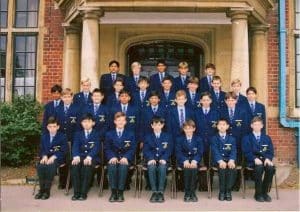 It was while establishing himself in this job that through a family friend he met Michael Bernstein, a senior figure working in New York’s accountancy scene. “I call him my Jewish father: to survive in New York , you need a Jewish father!” He invited Raj to come and work in the US and so, on September 23rd 2006, he moved across the Atlantic, starting work on 1st October from offices opposite Bloomingdale’s, the famous department store.
It was while establishing himself in this job that through a family friend he met Michael Bernstein, a senior figure working in New York’s accountancy scene. “I call him my Jewish father: to survive in New York , you need a Jewish father!” He invited Raj to come and work in the US and so, on September 23rd 2006, he moved across the Atlantic, starting work on 1st October from offices opposite Bloomingdale’s, the famous department store.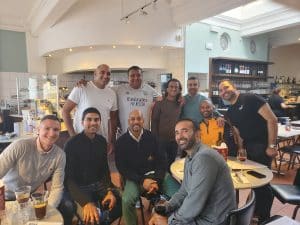 Reflecting on his life and career, Raj is clear about the benefits that QE has brought him. “QE actually did give us a good grounding. At that stage of your life, it’s important to have some discipline and sense of responsibility. There are of course always two ways of looking at things, but I think QE does teach you responsibility and it does give you the skillset to build your career in the way you want to.”
Reflecting on his life and career, Raj is clear about the benefits that QE has brought him. “QE actually did give us a good grounding. At that stage of your life, it’s important to have some discipline and sense of responsibility. There are of course always two ways of looking at things, but I think QE does teach you responsibility and it does give you the skillset to build your career in the way you want to.”